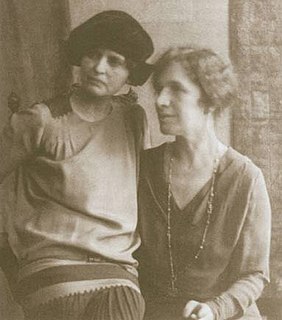A Quote by Nick Hornby
I had forgotten that Jess felt about long words the way that racists feel about black people: She hated them, and wanted to send them back from where they came from.
Related Quotes
Dena had always been a loner. She did not feel connected to anything. Or anybody. She felt as if everybody else had come into the world with a set of instructions about how to live and someone had forgotten to give them to her. She had no clue what she was supposed to feel, so she had spent her life faking at being a human being, with no idea how other people felt. What was it like to really love someone? To really fit in or belong somewhere? She was quick, and a good mimic, so she learned at an early age to give the impression of a normal, happy girl, but inside she had always been lonely.
These events are swirling around them. In the white community, people felt like they had no control over their neighborhoods, their destiny. In the black community, centuries of government and economic forces were pushing on them. I went in with a kind of arrogance, maybe, that came from living in a very intellectual family, and I left knowing that there was a lot about the way people lived that I didn't know about.
We live and breathe words. .... It was books that made me feel that perhaps I was not completely alone. They could be honest with me, and I with them. Reading your words, what you wrote, how you were lonely sometimes and afraid, but always brave; the way you saw the world, its colors and textures and sounds, I felt-I felt the way you thought, hoped, felt, dreamt. I felt I was dreaming and thinking and feeling with you. I dreamed what you dreamed, wanted what you wanted-and then I realized that truly I just wanted you
. . . this rage - I have never forgotten it - contained every anger, every revolt I had ever felt in my life - the way I felt when I saw the black dog hunted, the way I felt when I watched old Uncle Henry taken away to the almshouse, the way I felt whenever I had seen people or animals hurt for the pleasure or profit of others.
He wanted to hear her concerns and alleviate them, he wanted to hold her and kiss her and convince her that he would find a way to make their relationship work, no matter how hard that might be. He wanted to to make her hear his words: that he couldn't imagine a lofe without her,that his feelings for her were real. But most of all, he wanted to reassure himself that she felt the same way about him.
In this moment she felt that she had been robbed of an enormous number of valuable things, whether material or intangible: things lost or broken by her own fault, things she had forgotten and left in houses when she moved: books borrowed from her and not returned, journeys she had planned and had not made, words she had waited to hear spoken to her and had not heard, and the words she meant to answer with. . . .
Some women don't care how their quilts look. They piece the squares together any sort of way, but she couldn't stand careless sewing. She wanted her quilts, and Joy's, made right. Quilts stay a long time after people are gone from this world, and witness about them for good or bad. She wanted people to see, when she was gone, that she'd never been a shiftless or don't-care woman.






































